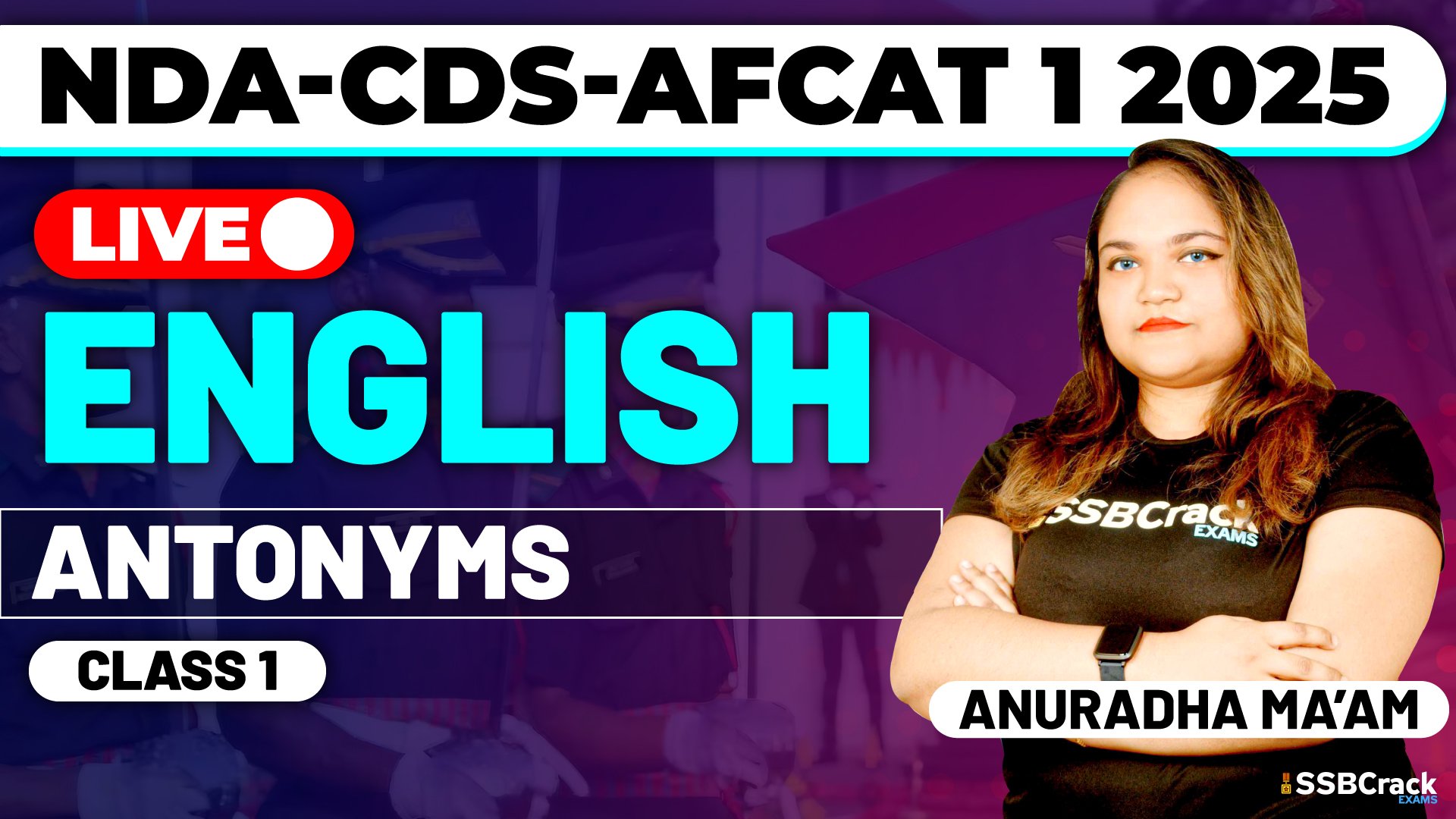The Antonyms topic holds significant weight in the English sections of competitive defense exams like NDA, CDS, and AFCAT. This topic assesses candidates’ vocabulary and their ability to comprehend the opposite meanings of words. Mastery of antonyms not only helps in this specific section but also strengthens overall language comprehension, which is essential for excelling in these exams.
Why Antonyms Are Crucial
Antonyms test your vocabulary depth, which is essential for understanding and using words effectively in sentences. In competitive exams, antonym questions require you to pick the word that expresses the opposite meaning of a given word. This demands a solid grasp of vocabulary, including knowledge of root words, prefixes, and suffixes, to understand word meanings more deeply.
In these exams, candidates might encounter straightforward questions where they are required to find an antonym, or they could be tasked with sentence-based questions where they need to choose the word that best conveys the opposite idea to the context given. Without a broad vocabulary, it becomes difficult to tackle such questions effectively.
Importance in NDA, CDS & AFCAT
- Vocabulary Building: Antonyms provide an excellent opportunity for candidates to enhance their vocabulary. This vocabulary knowledge is crucial for other topics as well, such as synonyms, comprehension passages, and sentence completion.
- Contextual Understanding: Questions on antonyms often test not just knowledge of individual words but also their usage in context. This requires candidates to think critically and interpret the sentence or word in the question.
- Score-Boosting Section: As questions from antonyms are often considered straightforward, they can be an easy scoring section if well-prepared. A strong vocabulary foundation allows candidates to quickly identify the correct answers without much hesitation.
Antonyms Class 1: MCQ Session
In Antonyms Class 1, I conducted an MCQ session where candidates solved important questions from the antonyms topic. This hands-on practice helped them familiarize themselves with common antonyms, improve their vocabulary, and refine their ability to recognize opposite meanings quickly.
Directions: Each item in this section consists of a sentence with an underlined word followed by four words/group of words. Select the option that is opposite in meaning to the underlined word and mark your response on the answer sheet accordingly.
Q) It is not difficult to take note of his immaculate style of writing.
(a) stained
(b) uneven
(c) impure
(d) flawed
Ans. (d)
Q) The research showed that the drug has pernicious effect on the health of patients.
(a) fair
(b) advantageous
(c) beneficial
(d) satisfactory
Ans. (c)
Q) I am in a rather precarious position in my place of work.
(a) comfortable
(b) senior
(c) privileged
(d) secure
Ans. (d)
Q) There are no permanent adversaries in politics.
(a) associates
(b) allies
(c) collaborators
(d) partners
Ans. (b)
Q) The princess charming was the centre of attraction today.
(a) enchanting
(b) hypnotic
(c) repulsive
(d) fascinating
Ans. (c)
For more questions, check out NDA-CDS-AFCAT 1 2025 Exam English Live – Antonyms – Class 1
Focusing on antonyms is an excellent way to boost overall English skills and perform better in the NDA, CDS, and AFCAT exams. By practicing antonym-based questions regularly and expanding vocabulary knowledge, candidates can ensure they tackle this section confidently.







